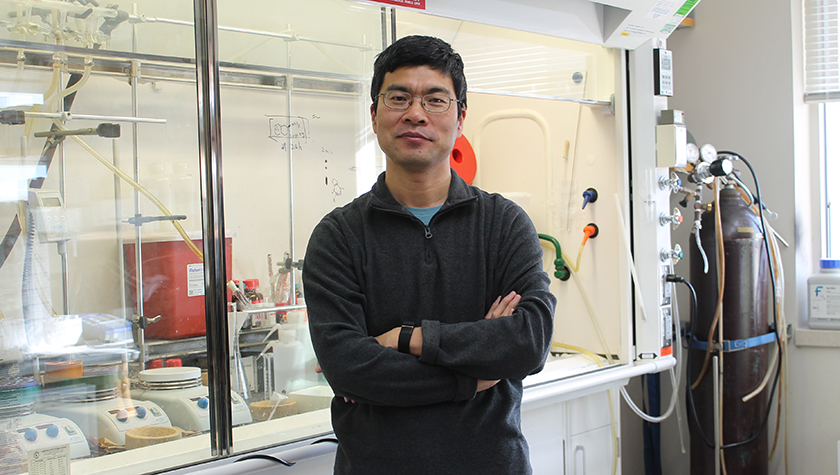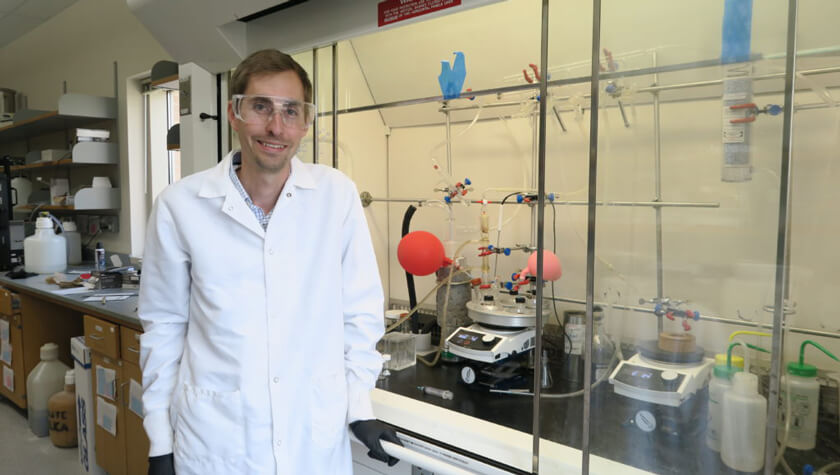The prestigious campus award is funding Pharmacology and Toxicology student research into cancer, aging, and plant growth.


The prestigious campus award is funding Pharmacology and Toxicology student research into cancer, aging, and plant growth.

The support from the National Science Foundation will help Professor Weiping Tang develop novel chemical methods to synthesize bacterial carbohydrates for studies of biology and disease.

Soon after graduation, Tony Tam (PhD ’18) advances drug development and formulation at Merck.

By Eric Hamilton This article originally appeared on UW–Madison’s news page. University of Wisconsin–Madison scientists have discovered that a majority of people they tested who were taking opioid painkillers for chronic back pain produced antibodies against …

A nationwide study into the pharmacist workforce finds that clinical services and ambulatory care are growing as the workforce becomes more diverse.

With NIH BRAINS award, Assistant Professor Cody Wenthur is using a vaccine approach to develop safer and more effective antidepressants from ketamine.

From biotech to the ongoing COVID-19 response, alum Mark Rogge (BS ’82, MS ’84) is leading the charge.

Alumna Tracy Laabs (BS ’01) has spent her career propelling neuroengineering and neurotechnology.

Professor Lingjun Li’s mass spectrometry expertise enables large-scale discovery of low-abundance neuropeptides with potential applications in medical and environmental challenges.

School of Pharmacy team conducts statewide testing to facilitate patient education about opioid medications.